Seth Siegel is a voice that counts in the Water World – having published some of the most influential water books of the past decade and spoken on every scene you can think of.
Yet, in every keynote he delivers, he never fails to captivate the audience to convey his message home. There’s something wrong with what we drink, the way we manage our water, and the allocation of the precious blue resource. And there’s a better way around: simply replicate what works! That’s far too much to pack in 30 minutes? For sure, yet I tried ⬇️
with 🎙️ Seth Siegel – writer, lawyer, activist, serial entrepreneur, and an acclaimed public speaker.
💧 You might have read his “Troubled Water” book – and if you haven’t, you should – or his international best-seller “Let there be Water,” translated into 20+ languages.
This episode is part of my Series on the Water Crisis in America
What we covered:
📉 How water tariffs are desperately too low and how this has consequences on the entire utility sector
😱 How we’re operating municipal water exactly how we did it 75 or 100 years ago.
👴 How when it comes to agriculture and irrigation, we’re lagging even further behind, as we operate as it was done… 5000 years ago!
📘 Why Seth Siegel got interested in water in the first place, and what his creative process was for his two first books, Let There be Water and Troubled Water.
🪶 How the success of the books changed Seth’s life and got him to speak in the who’s who of the prestigious and impactful scenes
😊 How Seth Siegel’s approach to writing is not only to highlight problems but also to pair them with solutions
🏗️ Why consolidation is needed in the Water Utility sector and how it shall be done
❌ What the actual problem with the scattered US utilities is, and how is it the worst of two worlds
🤒 Why federal policies don’t react to the right stimuli today – and how that shall change in the future
🥀 Why water can’t be free, and what happens when you still try the gratis experiment
🔮 Where water shall be treated in the future, why it will not be central anymore, and how the actual treatment may look like
⚒️ How technology shall support the roll-out of the new distributed approach
🍾 Being a special member of a 1.3 million work group, putting ambitious projects on the ice during CoVid times, aborted new book research, new business endeavors… and much more!
🔥 … and of course, we concluded with two 𝙧𝙖𝙥𝙞𝙙 𝙛𝙞𝙧𝙚 𝙦𝙪𝙚𝙨𝙩𝙞𝙤𝙣𝙨 🔥
Resources:
➡️ Send your warm regards to Seth on LinkedIn; he’s more of a Twitter guy though!
➡️ Visit Seth Siegel’s Website
➡️ A big THANK YOU to Sciens Water for enabling this episode!

is on Linkedin ➡️
Teaser 1: Seth Siegel explains how the US are the worst of two Worlds (and more)
Teaser 2: Seth Siegel explains why Water can’t be free (and what happens if it is)
Teaser 3: Big Brother, Terminator or the Future of Water?
Full Video: My conversation with Seth Siegel
Table of contents
- What we covered:
- Resources:
- Teaser 1: Seth Siegel explains how the US are the worst of two Worlds (and more)
- Teaser 2: Seth Siegel explains why Water can’t be free (and what happens if it is)
- Teaser 3: Big Brother, Terminator or the Future of Water?
- Full Video: My conversation with Seth Siegel
- Full Transcript:
- What’s to rethink in Water, according to Seth Siegel?
- Seth Siegel: a (twice) best-selling Water Author
- After 500 Talks, Seth Siegel’s 50’000 Utilities Figure still never fails to Impress
- Is the US EPA going in the right direction with its new PFAS recommendations?
- Seth Siegel’s take on the controversial topic of Water Tariffs (should it be free?)
- Seth Siegel’s vision of the future of Tap Water Quality
- Rapid fire questions:
- Other Episodes:
Full Transcript:
These are computer-generated, so expect some typos 🙂
Antoine Walter: Hi, Seth! Welcome to the show.
Seth Siegel: A pleasure to be here.
Antoine Walter: I have to say, somehow, to me, it’s a dream come true. I was looking forward to having you one day on that microphone. I had people on that microphone who said they are in the water business and water entrepreneurship because they’ve read your Troubled Water book.
We also covered by different lenses how Israel. A special country when it comes to water management, which is also something you cover in your book. Let there be water.
What’s to rethink in Water, according to Seth Siegel?
Having said that, given the title of the conference, what is it that we have to rethink in water?
Seth Siegel: You know, water is so fundamental and so basic that we risk, we take it for granted, and one of the things that you do when you take things for granted is that you don’t rethink paradigms.
In troubled water, I made a number of different points, one of which is that we are not charged the right amount of money for water. That’s to say, we’re not charged enough.
Water is (still) too cheap
Of course, indigent people should not have to be responsible for that, but for the general public, we don’t pay enough. We have agreed to allow our water systems to be run by our mayors, which is a big mistake because they will never wanna raise water rates as their public will see it as a tax, even if that means inferior water, inferior health of water, inferior staff or inadequate staff. Inferior software, old software.
And likewise, on the other part of the equation is that we just take for granted that whatever it was that was done previously is fine in the future. Now, we don’t take that approach in just about any other field. You can’t think of another industry, transportation, education, military publishing, I mean, but you name it, where there haven’t been revolutionary changes in just 20 years and probably several revolutions in the last 20 years.
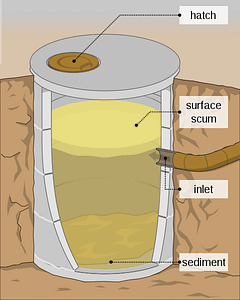
And yet water, we tend to be doing what we were doing in terms of municipal water. We tend to be doing what we were doing 75 and a hundred years ago. In terms of agricultural water, lamentably, we’re doing what we were doing thousands of years ago.
Irrigation is still done as it was done 5’000 years ago
Antoine Walter: You give that example of the flood irrigation which is done still the same way nowadays as five thousand years ago. Why don’t we change? You explain how we don’t change, but why?
Seth Siegel: Well, there’s a number of reasons, but one of the key reasons is that farmers are not very well paid for their work and for their produce. And so therefore, they don’t have a lot of margins to invest in new technologies.
The reason why I’m excited about this company called NDrip is that it does it all! It’s low cost, so therefore farmers of commodity crops like corn or rice or wheat or potatoes or cotton or sugar beets or anything like that can now afford to utilize this technology, whereas other technologies, Center pivot and pressurized irrigation drip, were always too expensive.
So it made more sense to waste copious amounts of water by using flood irrigation, which as you say was used 5,000 years ago than it does to update.
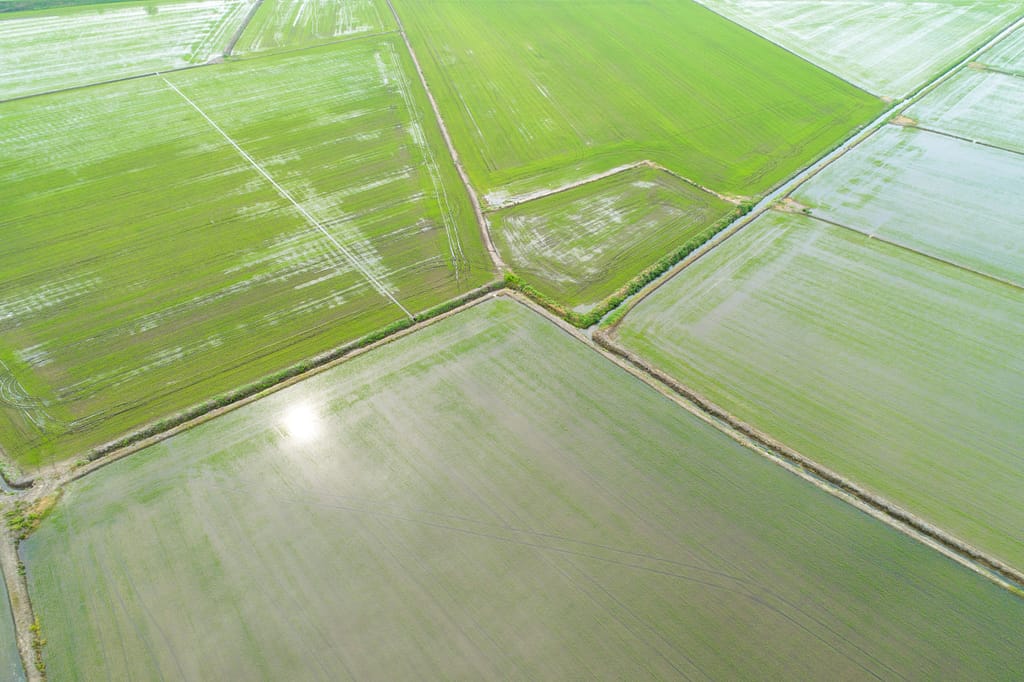
But now that you have this inexpensive, easy-to-use, Labor-saving, yield-enhancing, fertilizer reducing, carbon emissions reducing, and hugely water-saving technology. I’m of the opinion that the whole World is going to figure out its way to use either N Drip or a product like N Drip.
There’s an old expression: build a better mouse trap, and the World will be a path to your door.
And this is definitively the better Mouse Trap.
Seth Siegel: a (twice) best-selling Water Author
Antoine Walter: To solve a problem goes through several steps, and usually, the first step is awareness. You need to be aware that you have a problem. You’ve been writing two books on the water topic and the third book on motivational quotes. Your two water books are best sellers, New York Times Best Sellers, that means by the numbers. You have raised awareness. Could you measure that impact?
Seth Siegel: Well, yes and no. First of all, just although I was a few books shy of making the New York Times Best Seller list with Troubled Water, I didn’t actually make the best seller list on that.
But it has sold very well!
Antoine Walter: I liked both books, but I prefer Troubled Water if I’m allowed to mention it!
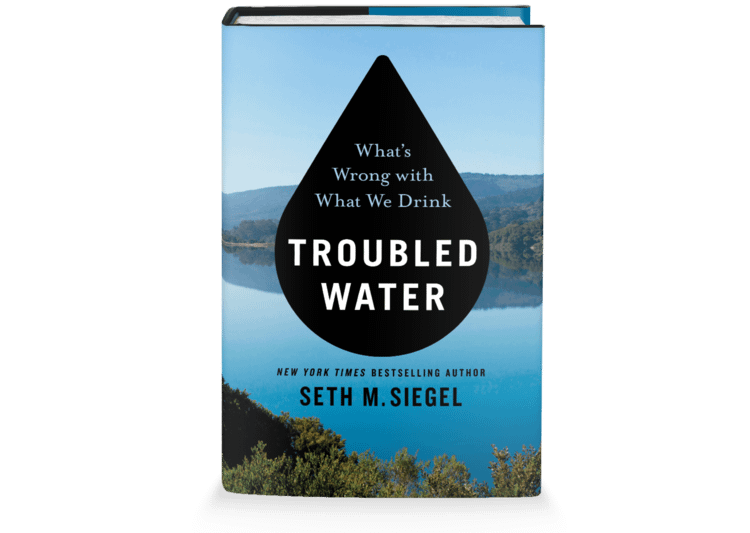
Seth Siegel: I must say, I’m told by most people that they prefer Let there be water, but I thought that Troubled Water was the most sophisticated book, frankly. I wrote it second; by then, I was more serious about writing. The research was different, and I also thought that Troubled Water was a more captivating book, and given the wild success of Let There Be Water, it’s now out in 24 languages. It’s in sale in, I think 50 something countries. I was sure that Troubled Water was gonna be double that.
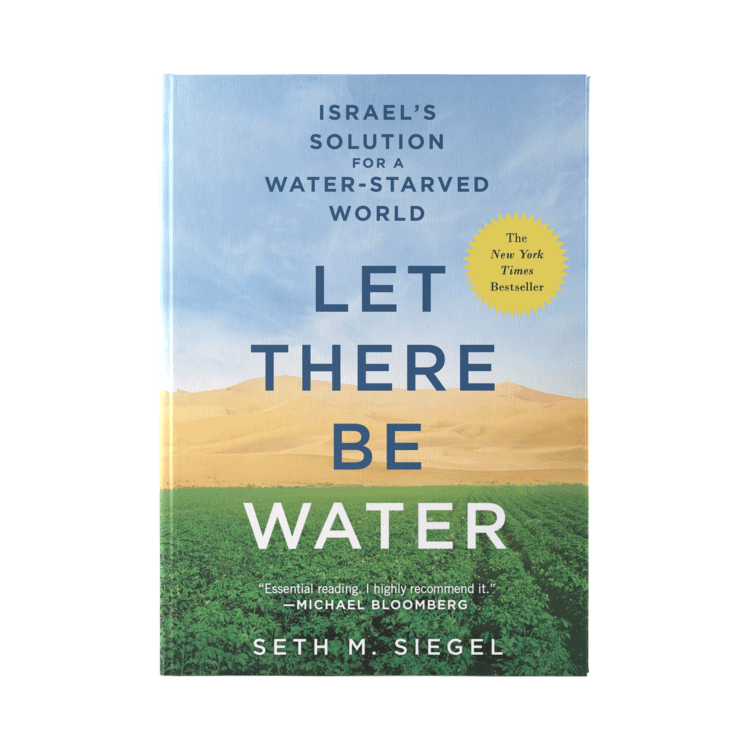
And then when it wasn’t – that’s the nature of life and publishing and whatever, but it’s totally fine. But to your question about measuring the impact, you can answer that question in a lot of ways. First of all, how is the impact on my own life? It’s profound.
How his books impacted Seth Siegel’s life…
I wrote these books really to educate myself about areas that I was troubled about. One was water scarcity and what effect it would have on the World. The second was, why is America’s drinking water not cleaner, healthier, safer, and tastier? And when the books came out, they really launched me into a very special place.
There are a lot of people working in Water. There are 1.3 million Americans who work in water, but there are not a lot of water people who are writers and speakers. And so this got me invited to speak! I’ve now spoken close to 500 different audiences and of all kinds of universities, corporations, retreats, community centers, think tanks, and just about, I can’t think of a format that I haven’t been invited to or spoken at.

I’ve been invited to speak at boards of directors. Foundations have asked me to come in and speak to their key donors. So I’ve spoken at just a whole wide array of places. I’ve spoken in the US Senate and at the House. I’ve spoken at the World Bank. I’ve spoken, I think, four, maybe five times now with the United Nations.
So the impact of this has been, in terms of my own life, a complete change. I went from being a guy interested in some public policy issues to now this…
When I wake up in the morning, this is what I do and what I think about, and it’s been a very exciting gift I’ve given myself.
I had a not-so-wonderful legal career. I didn’t enjoy it, but I had a wonderful business career. After I sold my company, I didn’t know exactly what I would do next, but then this happened.
… and how it impacted the World
But that I don’t think is what the thrust of your question is. I think the thrust of your question really is, What impact on society have the books had? And what I can say is that I think that it’s been profound in terms of the first book.
I happen to know from people in the Israeli government who’ve told me that thousands and thousands of people from around the World now, Come to Israel to look for solutions to water scarcity, water infrastructure, water education, water communications, and a whole host of different issues.
Now, some of that was going on obviously before my book, but this has accelerated that process.
It also, I believe, has raised not only the awareness of water scarcity but has done something much more important.
I think the other great thing about Let there be water, if I can say so, is that the reader doesn’t come away depressed. The reader comes away feeling, Oh wow, if we focus. If we push our government to do this, if we push our society to think differently, we have solutions, then we can do it in time.
Did Trouble Water miss its appointment with History?
In terms of troubled water, it had some impact and then covid hit. We were getting some really great traction. I’ll tell a story that I’ve actually never told before, which is: when it came out, I was invited to speak at the White House to senior staff, and I did. And then that led to them coming back to me and saying, Could you come back and give us some solutions?
And I took the ten ideas out of the book, and I massaged them for the current political environment. And they were extremely excited about this. Then they decided, I was just nodding my head, they decided they wanted to have a water conference at the White House, and it was going to be in what ended up being three months after Covid.

So it got canceled, obviously, but we were on our way to having a really important national conversation about water quality, water safety, lead service lines. It came close but was not a perfect fit.
On the other hand, I regularly get letters and calls from people, from utilities, civic groups, and so forth saying, We’ve read your book, or I’ve read your book, and we are using it as a roadmap for what we can do in our community.
So it’s been very gratifying in that regard. I would say that the impact of troubled water has not been as deep as that of let there be water because it also calls for a lot of sacrifices and people don’t generally agree to sacrifice until they have to.
After 500 Talks, Seth Siegel’s 50’000 Utilities Figure still never fails to Impress
Antoine Walter: You mentioned the 500 talks you’ve been giving. And I was watching people this morning during your keynote, and when you reveal your number of utilities in the US, it still triggers the same effect. People are like, Wow, not possible. Incredible. It can’t be that much.
I just did the simple maths. I’m working in Switzerland. Switzerland has 8 million inhabitants, and it has 700 utilities. So basically, the maths play out roughly the same as in the US but there, it’s fully normal. So, do you think this eye-opening moment has to happen a bit everywhere in the World?
Maybe you don’t have to be as extreme as the British with their 17 utilities, but maybe 52,000 utilities in the US is too much, and any country with that ratio has a too high ratio?
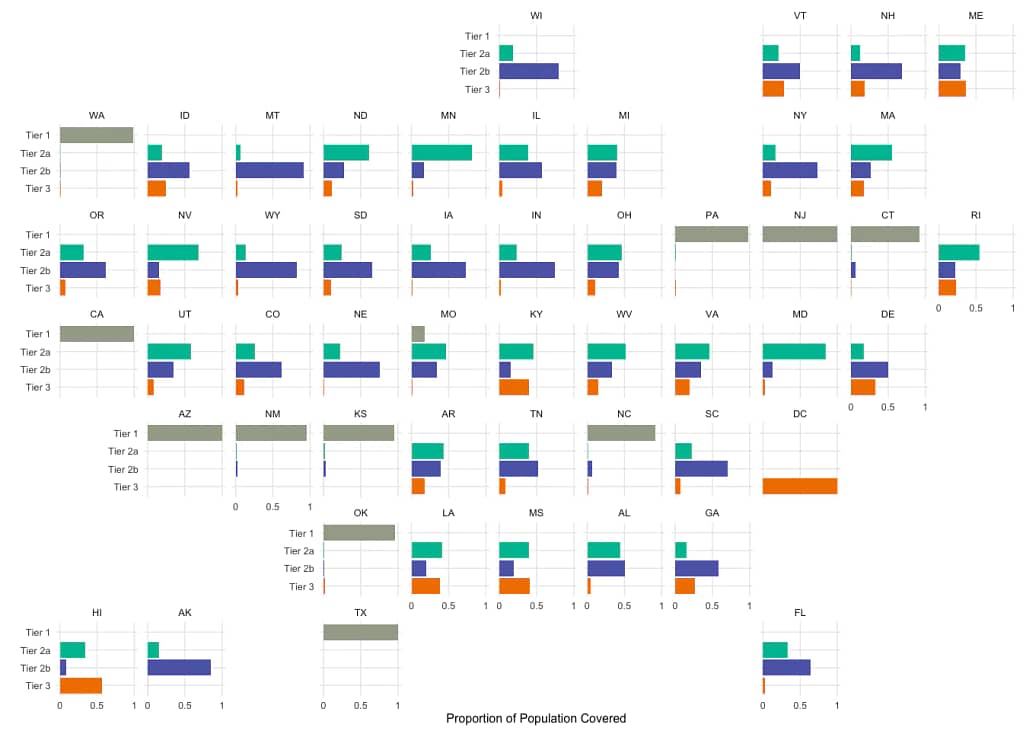
Seth Siegel: Although I’d like to make believe I’m an expert on everything, I try not to actually pretend that I know what I’m talking about.
So what I know about Switzerland is that I love visiting it there. I, every time I get a chance to go for business and sometimes for pleasure, I’m always happy I have done so, but I don’t really know how the utilities interact.
In terms of quality control and so forth, it would seem to me that 700 utilities for 8 million people are probably not a very good idea, although it’s possible that some of those utilities are just there to serve a small mountain village community or something like that.
But I don’t know.
As per Seth Siegel’s recommendation for the US Water Scene, some countries are consolidating their water utilities
Antoine Walter: There’s actually a country plan to close the smallest one and to concentrate into the biggest one. So somehow, to go in the direction, which you suggest, so probably, there’s a logic in that!
Seth Siegel: People are afraid. When I talk about this consolidation issue, and I’ve talked about it in South America, I was invited to speak to conferences and parliaments around the World.
And I remember I was at a government-sponsored event in Chile, and I was talking about the importance of consolidation. And the people that were very frightened by it said: What happens if this leads to monopolization? What happens if it leads to corporations taking advantage of us?
And I said, why would you necessarily think that it’s all or nothing?
And I believe the same here, which is why do we think it’s all or nothing? Why can’t we just simply say we’re gonna have a rational number of utilities and have them highly regulated? Why would that be a bad combination? You have super smart rules and regulations for them. You have metrics for them. You have improvements that they must achieve and that at the same time, You don’t have so many that you can’t do anything with your regulation.
America today has the worst of two Worlds when it comes to Water Management
So now we have the worst of both worlds in America. We have these 50,000 plus utilities. We have a lot of regulations, and the EPA can’t possibly speak with more than a handful of utilities per day, per week, per month, per year. And so therefore, a lot of them just sort of are floating along, as if they have no supervision at all, so that the regulatory regime is theoretical, not practical.
700 utilities is still a manageable number for a bureaucracy. I mean, the US Congress is 535 members of Congress, so you know, you can communicate with all of them, through leadership and through quick communications, and you can set up norms.
You can’t do that with 50’000. There are just too many folds between the cracks. And that’s my argument. If we had 700 in the US, I’d still say it’s too many, but at least it would be a number that we could manage.
Is the US EPA going in the right direction with its new PFAS recommendations?
Antoine Walter: You mentioned the EPA in your Troubled Water book. You mentioned as well how the EPA hasn’t regulated a single new compound in 25 years.
How do you react to the EPA starting to move on PFAS?
Seth Siegel: Well, I think it’s just wonderful!
We don’t know where exactly they’re gonna be netting out. We don’t exactly know what they’re gonna be, demanding. But I think it’s long overdue, but if it’s one and done, if it’s that and only that, then what we learned is that once again, is that the only time the federal bureaucracy is gonna move is when there’s a hue and cry, and that consumers everywhere are screaming about it. And that I think is not the right approach.
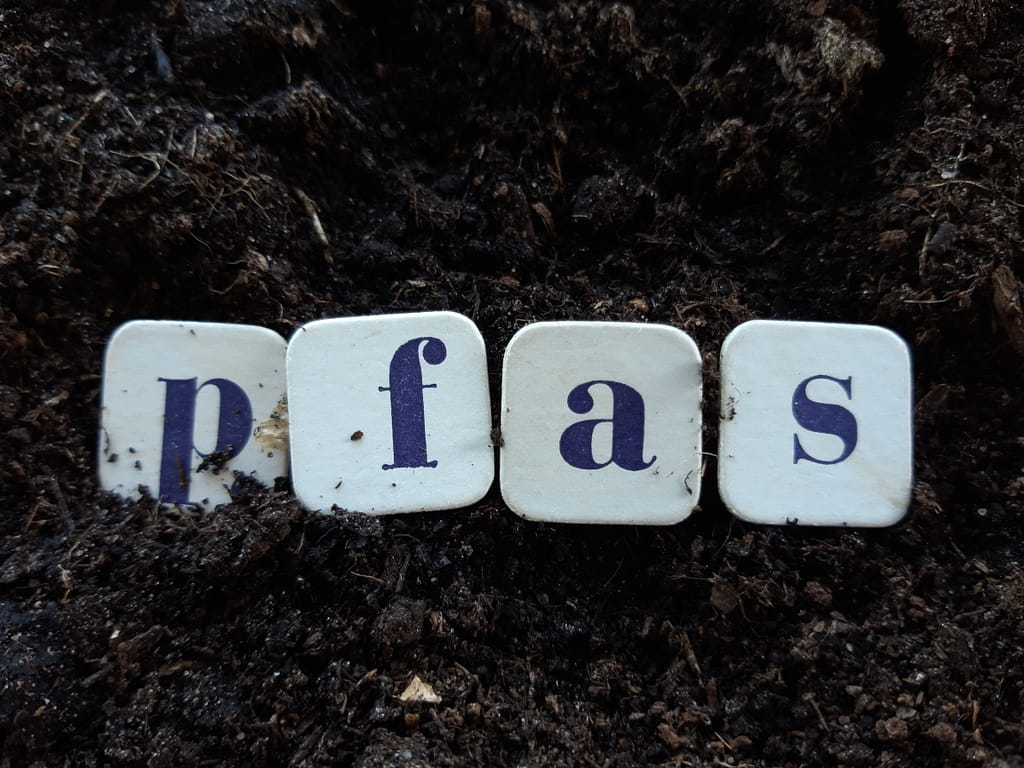
I think the right approach should be a more proactive governance structure that says, what is it that are the threats to public health? And I don’t want to necessarily say that we take the protective model of the Europeans, but that we at least do not agree to let our public be the Guinea pigs of the effect of different chemicals in our water!
“Do you think we just discovered that PFAS was a problem?” – Seth Siegel
And that’s what concerns me. Do you think it was just this year that we discovered PFAS was a problem? We’ve known PFAS is a problem for a while now, and yet we just let it go and let it go and let it go. And that’s the model we have used is that things are unregulated or so lightly regulated, that they’re functionally unregulated.
And then you have the model of people get sick and… I’m not anti-business, I’m actually quite pro-business. But then you have an industry that has a vested interest in denying any culpability. And then they’ll buy off some scientists and they’ll stall and the delay, and then they’ll substitute one chemical for another and they’ll say, Oh, it’s a new chemical and it’s not necessarily a new chemical at all!
So I’m personally glad that PFAS is moving forward. But I would like to know what else they’re thinking about. What is their second trick in their toolkit after they decide to regulate PFAS and decide what they’re gonna do in regulating it?
Seth Siegel’s take on the controversial topic of Water Tariffs (should it be free?)
Antoine Walter: You regularly speak about the price of water and how we have to pay the real price and not subsidize water because that’s the way to hide the real cost.
And then it leads to the Mayor being in charge. Actually that is quite a controversial topic! I would be on your side, honestly. But on that microphone, I had the discussion several times with some guests who said: No water is a universal right, and we should have the first 50 liters for free, or the first 150 liters for free.
So I had different theories on that microphone to go even more to the extreme, and sorry for the sidetrack, I gave a conference at a university where I was trying to explain, at my little level, the economics of water. And one professor stood up and said: You are basically, like the devil’s right hand or associate, and water is like air and shall be free.
So how do we bring the message across that it is valuing water to pay the right price?
Seth Siegel: First of all, it’s a complete fallacy that water can be free. Water cannot be free. If you want to stand out in front of this building, next time it rains with a bucket, and capture all that water, that water should be free. That’s yours, good luck.
There is no free water lunch
But if you want to open your tap, who’s gonna pay for finding that water? Purifying that water? Administering that water? Transporting that water? How can that possibly be free? It can’t be free. And you know what happens when it’s free or tantamount to free? You know what happens?
The water quality is awful, or the water supply is irregular. Or the pipes leak to a degree of 65 or 70%. That’s what happens when it’s free, and we have examples from all over the World where it’s functionally free, and also at the same time, demand is high and supply is low, or demand is high, and quality is low, and the water is unsafe.

So, that’s the consequence. That is the absolute, immutable consequence of “free water.” Now, in terms of the first 50 liters being free, it’s not free. It means that somebody who’s buying the next 50 liters is subsidizing that water. Economically, there’s no concept of free anything because either someone is paying for it now, or someone else is paying for it in an indirect way, so it’s never free.
Water subsidies shall bring some equity
Now, what I do believe is fair, equitable, just moral is for us to say if people are indigent, they can’t go without water. That would be unfair, and that in the same way that we subsidize housing or we subsidize food, or we subsidize education or subsidize clothing, we should subsidize water.
We shouldn’t say that somebody should always have to assume that they can pay their own water bills, cuz they may not be able to, and maybe they aren’t getting a hundred percent of their food subsidized.
Maybe they’re getting 20% so fine, give ’em the 20% voucher for their water bills. But once you get into the game of giving out free or deeply subsidized as we know from example, after example, the quality goes down, supply becomes irregular, the infrastructure begins to rot, and then long term, everybody suffers.
You know, we all love utopian solutions and they’re very nice, but when you have to implement them, in the real World, you have to pay the consequences for the unseen consequences of the very, very many bad things that happen from me, or you, or someone else deciding to be a do-gooder and think that somebody else will pick up the bill.
It just doesn’t happen.
Seth Siegel’s vision of the future of Tap Water Quality
Antoine Walter: You mentioned utopian solutions. In your speech this morning, you talked about a foreseeable future where we would have a faucet, which gives us the water quality as we open it. Is that something that will happen? Should it happen?
Seth Siegel: I’ll tell you, since I wrote Troubled Water, I’ve come to a new conclusion.
I don’t think it’s gonna happen. And so therefore I think the new solution is gonna be household at the top resolution of quality. In other words, sooner or later, everybody’s gonna have some form of home filtration system.
Antoine Walter: Point of use, point of entry…
Seth Siegel: Yes, point of use, point of entry. I think probably right out of the tap is probably the smartest and safest.
Point of Use water treatment may well be the future
Obviously you don’t wanna have people taking showers with legionella in their water that could, be getting into their lungs. You still wanna have some level of quality, but I think that the concept of fixing the water from the source to be so pure and fixing the pipes to be so pure, even though I endorse that idea, I would not rewrite that in troubled water part two, so to speak, or in a second edition. I think it’s too Pollyanna-ish, too unrealistic, too disconnected from where the appetite for the public and municipalities are.
On the other hand, I think it’s, I it’s irresponsible. To continue to have it the way it is. So we need to have some type of a system – and I’ve seen some that I’m actually very impressed by. One in particular actually out of Israel as well, that purifies the water. And then because it is taking everything outta the water except for the H2O, you then have automatically the healthy parts of water get added back in. (note: something we had discussed with Jacob Bossaer from Bosaq)
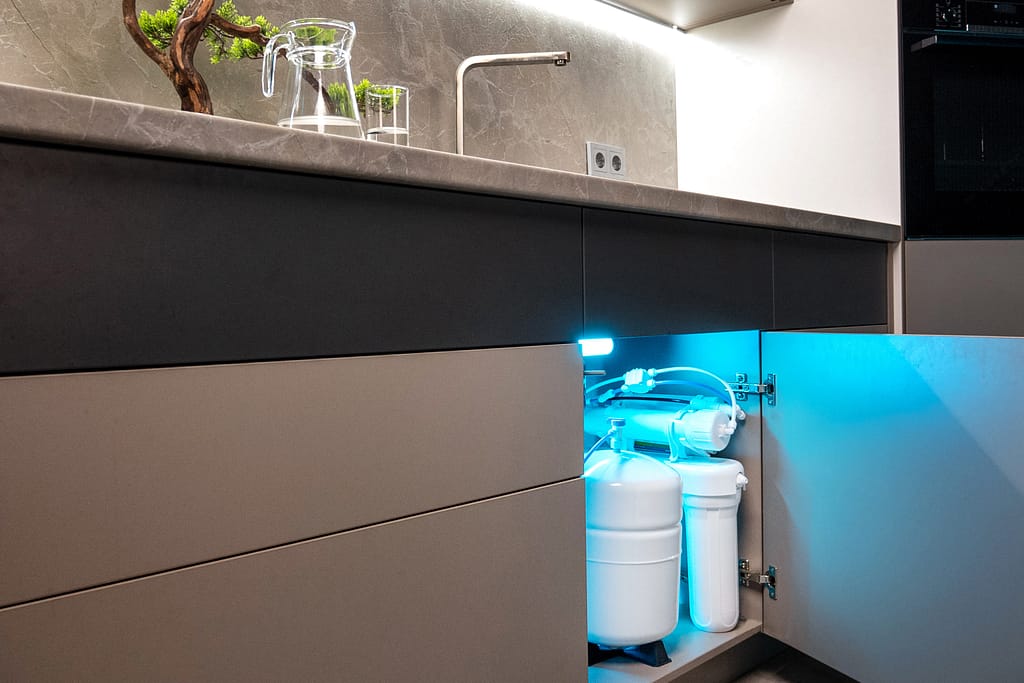
And then you can also modify it so it can taste like water in Switzerland or it tastes like water in Southern California, or it could taste like Patagonia water, you know, something like that. And I think, that kind of solution ultimately is gonna be the solution we see, this Brita filters and so forth, which are good, but they’re not complete solutions.
They do something, but they don’t do enough. And I think that’s good news. A little bit better is better. But I don’t think that ultimately the right solution is gonna be that. I think the right solution is gonna be a household system that’s going to really purify your water and then provide you an opportunity to add back in what you need.
Would a Point of Use / Point of Entry approach pose a structural problem?
Antoine Walter: But isn’t that a way to run in the same problem we have today with these scattered utilities? Because we have this. 51’000 or 52’000 utilities in the US but you have probably 200 million households in the US. So now if every single of these households has a point of use, point of entry, filter, those filters work absolutely fine when they are maintained, right. But the day they are not maintained right, they are probably causing more harm than good. So we might be facing a similar issue, but on steroids?
Seth Siegel: Yeah, maybe. But it’s also true that, of those 200 million households, if that’s the number, somebody in that household, in the vast majority of cases, has a cell phone.
And with technology, we could simply have it that, you started your filter on this date, or on average how many times you fill your pitcher. Or you could even have the pitcher have a chip in it, an IoT chipper so that we could know from the internet of things, how often you have filled this pitcher and then you can get an alert saying, “Please remember to change your filter now”.

Now, if somebody chooses not to do that, well, that’s obviously a bad outcome, and that certainly could happen. But even there, we could have a situation where, I mean, I’m speaking now very fancifully, very Jetsons-ish future, but we could very logically have a situation there where somebody comes knocking on your door and says: “we’ve noticed from our internet chip, that you haven’t changed the filter. Is there a reason for that?” I don’t wanna be too big brother. If somebody wants to toxisize their system, they should be allowed to do that. But I think that there are solutions that we could have without being too fanciful or too crazy.
Antoine Walter: Seth, I have so many more questions for you, but I have to be cautious of your time.
So I hope I will have the opportunity one day to have you again on that microphone for a deeper dive.
Seth Siegel: Just ask!
Rapid fire questions:
Antoine Walter: I’ll have just two rapid fire questions to close up that discussion. Here’s the first one: what’s the most exciting project you’ve been involved in and why?
Seth Siegel: I know this will sound cliche-ish, but how could there anything be the equal of falling in love with a woman and building a life with her and having children with her and raising those children to adulthood?
And just seeing life unfold before our eyes? I know that’s not what you meant, but…
Antoine Walter: That is absolutely what that meant. I mean, that is an awesome project!
Seth Siegel: That’s just the story of a life well lived. I have been blessed.
If you’re a believer as I am, I’ve been blessed by God beyond all measure. And if you’re not a believer, I’ve been lucky beyond all measure , but I grew up in a lower middle class household. I had no advantages. I found myself at an Ivy League University at 16 years of age. I didn’t know my way around anything.
I had never had an alcoholic beverage. My freshman, he was 19, his father was CEO of a New York Stock Exchange company, and his brother had been in the Olympics. And my first time in an airplane, I was already a college graduate. So, so I come from with no no, no sense of where the world is or how things work, and I managed to have a variety of careers, most of them very satisfying.
I’ve managed to have impact on my society. I’ve managed to have a long and loving. Still romantic life with a life partner. My wife obviously , but if that wasn’t clear, , you know, I’ve wonderful children and now I’m blessed with grandchildren. I’ve been able, because of my success, to assist charitable organizations and causes, I care deeply about how could one live a happier, better, more fulfilled life than that.
I’ve written books, I mean, I could just keep the list going and so how could any of us stream. How could any of us think that we could have be entitled to anything equal to that?
Antoine Walter: Last question, what is the trend to watch out for in the water sector?
Seth Siegel: I think the trend to watch for most is going to be that we’re going to see the impact of digitization on our lives for good and for bad. I spoke this morning about my fear about a cyber attack and our water systems. I think our water utilities are extraordinarily vulnerable, and I am very worried about that.
But I also think that as digital tools become cheaper and more ubiquitous, that we will begin integrating them into the way we operate our water systems of all kinds. Agricultural and household, and that we’re going to just find ourselves in a better place. So I think that’s the trend that water at long last will follow the rest of the world and will be improved as a result of it.
Antoine Walter: Well Seth again, I had incredible expectations for that discussion and you outperformed them. So I’m really happy about that. I’d be really happy to have a deeper dive with you, at some point, but for today I have to be reasonable and to let you have a good rest of the conference. Thanks a lot.
Seth Siegel: It’s really a pleasure to be here. Thank you so much for asking!

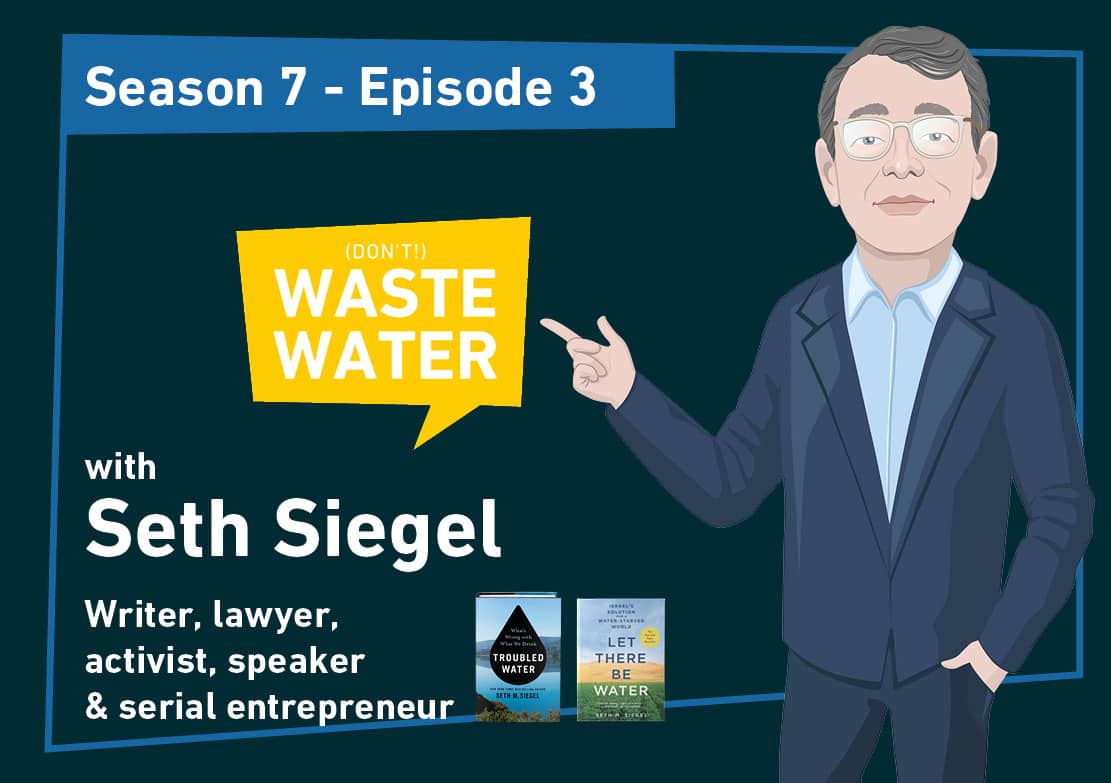











3 thoughts on “Seth Siegel: 50’000+ US Water Utilities, 500 Water Talks, 5 Decisive Truths?”